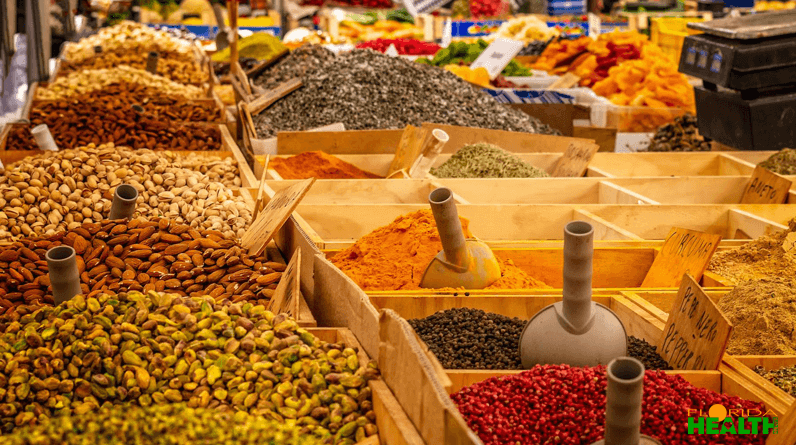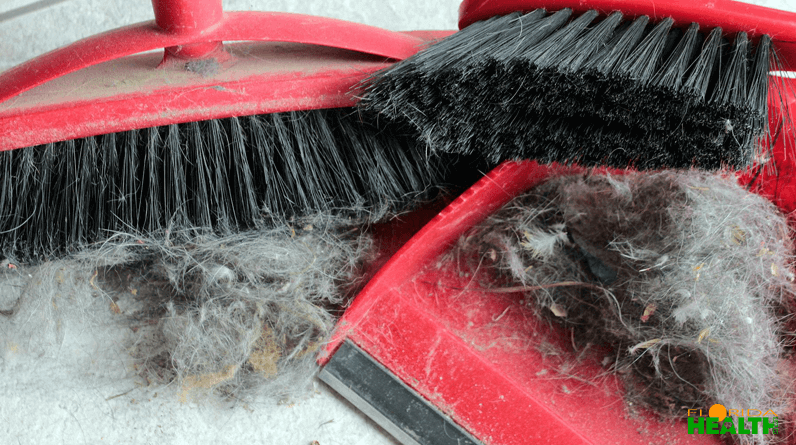
Herbs and spices have been used by people for centuries to support health. Over the years we have started to use more and more herbs and spices. Not only in food, but also in cosmetics. However, some people are sensitive to certain substances. These can also be herbs. One then speaks of a herbal allergy. In this article, we shine a light on this form of food hypersensitivity.
In the next paragraphs we will answer the following questions:
- What is the difference between food allergy and intolerance?
- What is a herbal allergy?
- What is the cause?
- Risk groups
- What reactions can an herbal allergy cause?
- Herbs as a supplement
What’s The Difference Between A Food Allergy And Intolerance?
A food allergy is an unusual reaction to a harmless food component. The immune system will see this food component as an intruder. This intruder is called an allergen. In case of food intolerance or non-allergic food hypersensitivity, the immune system is not directly involved.
The difference between an allergy and intolerance is that with an intolerance a small amount is tolerated, but a larger portion gives complaints. The limit at which complaints arise (the threshold value) is different for everyone. As a result, the complaints that occur usually come gradually. They are of the same nature as the complaints of a food allergy. In general, they are less serious.
What Is A Herbal Allergy?
An herbal allergy is a form of food hypersensitivity to herbs. Herbal allergy is not only caused by eating, but also by touching it or inhaling the smell. Besides food, cosmetic products also contain herbs that can cause the allergy.
What’s The Cause?
According to research by the American College of Allergy, about 2 to 3% of the population suffers from herbal allergies. It is expected that the number of people with complaints will increase. There are several causes that can explain the increase:
– Our food is full of herbs and spices
We use more and more herbs and spices in our food. We eat more exotic meals and many herbs and spices are also added to ready-made meals, herbal teas, and vegetarian dishes.
– Cosmetics
More and more cosmetics often use one or more herbs. For example in make-up, body oils, toothpaste, and perfumes. Herbs are used to improve the fragrance.
Common herbs that provoke an allergy are cinnamon and garlic, but also black pepper and vanilla can have consequences. In addition, herb mixes often contain up to 18 spices, which increases the risk of an allergic reaction. In general, the more spicy the spice, the greater the risk. The good news is that heating (cooking, roasting, or baking) the spices can reduce allergy triggers.
Risk Groups
There are certain groups that are more at risk of developing an allergic reaction to herbs.
- People who work a lot with herbs, such as cooks or herb growers.
- Women, because of the use of cosmetics
- People who react to birch pollen or mugwort. A cross-reaction can occur.
- Birch pollen (flowering season: April to May): cross-reaction to certain fruits (mn fresh apple, pear, cherry, and apricot), nuts (mn hazelnut), carrot, celery*, potato, etc.
- Mugwort pollen (Artemisia Vulgaris, flowering season: August): cross-reaction to plants of the umbellifer family, such as anise*, dill, angelica, chamomile*, caraway, chervil, cumin, coriander*, lava, mango, paprika, parsley, celery, fennel* and carrot.
* If you react to birch and/or mugwort pollen, you cannot use the aforementioned supplements.
What Reactions Can A Herbal Allergy Cause?
People who suffer from an allergic reaction to herbs can develop all kinds of complaints. Which ones? That is often very personal. Usually, an herbal allergy causes a mild reaction.
- Sneezing
- Coughing: Usually this is due to inhalation of herbs and is more of an irritation than an allergic reaction. Black pepper can cause coughing or asthma symptoms in people with asthma.
- Skin rash/eczema: herbs or spices contain substances that can cause irritation and rashes of the skin. Cinnamon, for example, may cause local skin rashes after contact. Cosmetics can also cause rashes because they often contain many herbs. In case of misunderstood eczema, an herbal allergy should be considered. Herbs that are suspected of causing an allergic reaction can be detected by means of a stick test. These are not standardized tests. They will only be offered in specialized allergy centers.
- Tickle and/or itching in the mouth: This is also called Oral Allergy Syndrome (OAS). For example reaction to fresh tarragon, and cross-reaction with weed pollen.
- Gastrointestinal and/or intestinal complaints
- Nausea
- Anaphylaxis (severe allergic reaction): although extremely rare, anaphylaxis has been described for some spice. This type of reaction can occur with oregano, thyme, coriander, caraway seeds, and cumin.
Herbs As A Supplement
Herbs and spices are rich in antioxidants, vitamins and minerals. At FloridaHealthNews, we have captured all the goodness of herbs and spices in one capsule. At our partners, you will find a wide range of herbal supplements. From well-known herbs and spices, such as garlic (good for heart and blood vessels), saffron (good for the mood), and cayenne pepper (supports fat burning). But also the lesser-known herbs such as astragalus. This herb has been used in traditional Chinese herbal medicine for 2000 years to increase resistance.
If you have no herbal allergy, you can use herbal supplements with complete peace of mind. When in doubt, always consult your doctor.
Further reading:
https://acaai.org/news/sugar-and-spice-and-everything-not-so-nice

Carl Riedel is an esteemed online researcher and writer, specializing in the intersection of technology and wellness. As a member of the International Association of Therapists, Carl brings a unique perspective to his work, skillfully integrating insights from therapy and digital trends. His articles help readers navigate the complexities of the digital age with an emphasis on promoting mental and emotional well-being.


